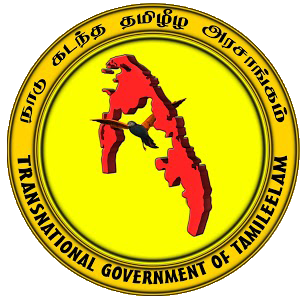Sri Lanka’s Sixth Amendment Challenged at the UN by 1,705 Lawyers from around the World: TGTE
 Complaint cited terminology of “one undivided and indivisible country” & safeguards against secession in Article 2.2. of the New Interim Constitutional Report
Complaint cited terminology of “one undivided and indivisible country” & safeguards against secession in Article 2.2. of the New Interim Constitutional Report
by Transnational Government of Tamil Eelam (TGTE), /EINPresswire.com/ GENEVA, SWITZERLAND, December 14, 2017
One thousand seven hundred and five lawyers (1,705) from around the world have joined the Transnational Government of Tamil Eelam (TGTE) and filed a complaint on December 8th, 2017 with the UN Human Rights Committee that the 6th Amendment to the Sri Lankan Constitution is a violation of freedom of speech and conscience, and the right to self-determination guaranteed in Articles 18, 19, and 1 of the International Covenant on Civil and Political Rights.
The Complaint was filed by former US Attorney General, Ramsey Clark, Justice K.P. Sivasubramaniam (Retd), Former Judge of the High Court of Madras, India, and the Prime Minister of The Transnational Government of Tamil Eelam (TGTE) Visuvanathan Rudrakumaran.
1,705 Lawyers from across the globe including heads of Bar Councils, law professors, and retired judges from U.S.A., U.K., Canada, France, Switzerland, South Sudan, and India (Tamil Nadu, Maharashtra, Karnataka & New Delhi), provide legal representation to the above complaint.
Such legal representation is reminiscent of legal representation provided by 67 lawyers including late S.J.V. Chelvanayakam QC, late G.G. Ponnampalam QC and the late M. Tiruchelvam, QC during the famous Trail-at-Bar proceedings in Sri Lanka in which the Tamil leaders argued that the Sri Lankan Government does not have the sovereignty over Tamils.
The Sixth Amendment to the Constitution of Sri Lanka criminalizes the exercise of the Tamil’s right to self-determination in the form of an independent state in accordance with UN General Assembly Resolution 2625 (1970) which is considered as customary international law.
In the Complaint, the Sri Lankan Supreme Court Decision issued on April 8th 2017, in Don Chandrasoma Vs. Mawai S. Senathirajah, Secretary, Illankai Thamil Arasu Kadchi (SC SPL 03/2014) was also cited. The Complaint argues that the above decision clearly illustrated even peaceful advocacy for an independent state would be subject to Article 4 of the Sixth Amendment to the Constitution [157A (4)] and be subject to the provisions of Article 5 of the Sixth Amendment to the Constitution of Sri Lanka [157A (5)]
The TGTE is citing several internationally well known cases to argue with the UN that the 6th Amendment to the Sri Lankan Constitution criminalized peaceful advocacy for an independent state and that it was a violation of freedom of conscience and freedom of speech guaranteed in the international covenant on civil and political rights.
The Complaint also cited the terminology of “one undivided and indivisible country” “aekiya raajyaya” and “orumiththa nadu” and the safeguards against secession in Article 2.2. of the New Interim Constitutional Report.
Some cases in point are as follows:
- The European Court of Human Rights in the cases of Okçuoğlu v. Turkey, and Arslan v. Turkey 8 July 1999 held that convictions for disseminating separatist propaganda violated the guarantee of freedom of expression in the European Convention of Human Rights.
- In the case of Erdoğdu and Incev. Turkey also July 8, 1999, the Court held that convictions for disseminating propaganda against the indivisibility of the state violated the guarantee of freedom of expression in the Convention.
- The Court, in the case of Association Ekin v. France held on July 17, 2001 that the banning of a book advocating Basque separatism violated the guarantee of freedom of expression in the Convention.
- In the case of IsakTepe v. Turkey the Court on October 21, 2008 held that a charge without a conviction for disseminating separatist propaganda violated the guarantee of freedom of expression in the Convention.
Once the communication is filed, the UN Human Rights Committee will call for an explanation from the Government of Sri Lanka.
This initiative is seen as part of a global effort to strengthen democracy.
A well-known human rights lawyer from Canada, David Matas, is coordinating TGTE’s initiative.
DRAFTING OF SRI LANKA’s NEW CONSTITUTION:
It is TGTE’s belief that given the present Sri Lankan government’s duplicitous political exercise of drafting a new constitution and a call for a referendum, this Complaint to the UN is a timely one. The Sixth Amendment to Sri Lanka’s constitution prohibits the Tamils to articulate their political aspirations freely.
If a referendum is to be held, it should be held among Tamils inside the island of Sri Lanka in an unhindered, open political space, and among the Tamil Diaspora.
BACKGROUND:
The starting point of the Sixth Amendment is in fact the well-known 1976 Vaddukoddai Resolution by united Tamil leadership, which called for (for the first time) the establishment of an independent and sovereign state of Tamil Eelam in the island of Sri Lanka.
In fact, the Vaddukoddai Resolution was promulgated before the armed struggle led by the Liberation Tigers of Tamil Eelam (LTTE) began.
During the subsequent general elections of 1977, the Vaddukoddai Resolution was put forward to the people and a mandate was sought by the united Tamil political leadership at the time. The Tamils in the NorthEast overwhelmingly voted in favor of the Resolution and gave a resounding mandate.
All elections since 1977 have been held under the imposed parameters of the Sixth Amendment. This implies that the mandate given by the people at the 1977 general election, the last time elections were held in an open political space, remains as the only valid one.